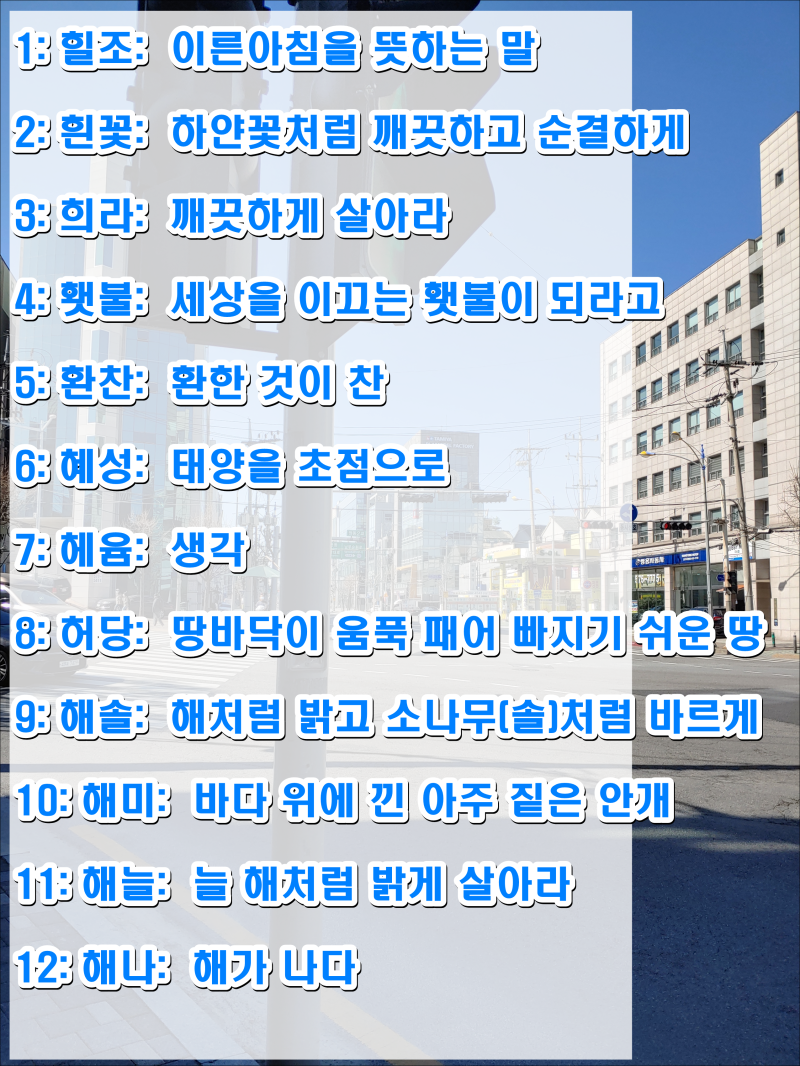랑 들어가는 단어
한국어는 동음이의어나 유의어가 풍부하며, 이는 다양한 의미와 뉘앙스를 표현할 수 있는 장점을 가지고 있다. 한편, 한국어에는 다양한 조사나 접사들이 존재하는데, 그 중 하나가 ‘랑’이다. 이번 기사에서는 ‘랑’의 뜻과 용법, 그리고 관련하여 자주 사용되는 품사들에 대해 알아보도록 하겠다. 또한, ‘랑’을 포함한 관용구, 속어, 문장 패턴, 그리고 유사한 단어들의 차이점, 표준 발음과 다른 발음들에 대해서도 살펴보겠다.
“랑”의 뜻과 용법
‘랑’은 한국어에서 대명사, 명사, 동사 등 다양한 품사와 함께 쓰이는 접사이다. 그러나 ‘랑’의 정확한 뜻을 설명하기는 어렵다. ‘랑’은 주로 동반, 동행, 함께함이라는 뉘앙스를 갖고 있으며, 감정적인 표현이나 상황에 사용되는 경우도 있다. 따라서 ‘랑’이 사용되는 문장의 맥락과 연결되어 그 의미를 파악하는 것이 중요하다.
“랑”이 쓰이는 대명사들
‘랑’은 대명사로 쓰일 때 주로 사람 또는 사물과의 동반, 동행을 나타낸다. “나랑”, “너랑”, “우리랑”과 같은 표현은 자신 또는 상대방과 함께하는 의미를 담고 있다. 예를 들어 “나랑 영화 보러 갈래?”라고 말하는 것은 “나와 함께 영화를 보러 갈래?”라는 의미가 된다.
“랑”이 쓰이는 명사들
‘랑’은 명사와 결합하여 새로운 의미를 형성하는 경우도 있다. “친구랑”, “사랑이랑”, “여행랑” 등의 표현은 친구와 함께인지, 사랑과 관계가 있는지, 여행과 관련이 있는지를 나타낼 수 있다. 이 경우에도 ‘랑’이 함께하는 대상을 강조하거나 상황에 따라 다른 의미를 가질 수 있다.
“랑”이 쓰이는 동사들
‘랑’은 동사와 결합하여 동작의 대상을 나타내는 역할도 한다. 예를 들어 “놀랑”, “출랑하다”, “따르랑”과 같이 동사의 뜻과 ‘랑’이 함께 사용되면, 뜻이 상세하게 구체화되어 더 다양한 뉘앙스를 표현할 수 있다. “놀랑”은 “놀고 다니다”라는 뜻이고, “출랑하다”는 “외출하다”라는 뜻이 되는 것이다.
“랑”을 포함한 관용구와 속어
‘랑’은 한국어에 많은 관용구와 속어에서 사용된다. “군랑하다”는 말싸움을 나는 것을 의미하고, “고랑”은 근심이나 걱정을 뜻한다. 또한 “외롱녀”는 여자와 경험이 부족한 남자 사이의 관계를 묘사하기 위해 사용되며, “일랑팔”은 전쟁을 뜻하는 속어이다.
“랑”이 쓰이는 문장 패턴
‘랑’은 문장에서도 특정한 패턴으로 사용된다. ” ~랑 ~”의 형태로 사용할 때는 두 가지 이상의 동작이 동시에 일어나는 상황을 나타내는데 사용된다. 예를 들어 “밖에 비가 오르막 거리에 나랑 걸어가는 것은 좋지 않아.”라고 말하는 것은 “밖에 비가 오고, 거리에 나와 함께 걸어가는 것은 좋지 않아.”라는 의미가 된다.
“랑”과 유사한 단어들의 차이점
‘랑’과 유사한 단어들로는 ‘앙’이나 ‘낭’이 있다. 이들은 비슷한 뉘앙스를 표현하기는 하지만, 쓰임새와 의미에서 차이가 있다. ‘앙’은 주로 사랑스럽고 귀여운 것을 표현할 때 사용되는 반면, ‘낭’은 소리가 울리거나 울려 퍼지는 모양을 나타낼 때 사용된다. 이들의 사용은 문맥에 따라 달라질 수 있다.
“랑”의 표준 발음과 다른 발음들
‘랑’은 어떤 맥락에서 사용되느냐에 따라 발음이 조금씩 달라질 수 있다. 대체로 ‘랑’은 ‘랑’으로 발음되지만, 어떤 경우에는 ‘앙’으로 발음될 때도 있다. 이러한 발음의 차이는 말하는 사람이나 지역에 따라 달라질 수 있다. 따라서 ‘랑’을 사용할 때 맥락과 발음에 유의해야 한다.
“랑”의 문화적 의미와 용례
‘랑’은 한국어에 굉장히 흔하게 사용되는 접사로, 다양한 문화적 의미와 용례를 가지고 있다. ‘랑’으로 끝나는 단어로는 “여보랑”, “친구랑”, “사랑이랑” 등이 있다. 또한, ‘랑’으로 시작하는 단어로는 “랑그루”, “랑뽕” 등도 있다. 노래의 가사에서도 ‘랑’이 많이 사용되며, “랑야” 같은 표현이 포함된 가사를 자주 접할 수 있다. 또한, ‘랑’과 함께 사용되는 관용구나 속어 또한 문화적인 특성을 반영하고 있다.
FAQs
Q1: ‘랑’이 다른 의미로 사용되는 경우가 있을까요?
A1: ‘랑’의 의미는 맥락에 따라 달라질 수 있습니다. 일반적으로는 함께하는 뉘앙스를 지니지만, 특정한 상황이나 문장에서는 다른 의미로 사용될 수도 있으니 이에 유의해야 합니다.
Q2: ‘랑’의 발음은 어떻게 되나요?
A2: 보통 ‘랑’으로 발음되지만, 상황에 따라 ‘앙’으로 발음될 때도 있습니다. 발음은 사용자나 지역에 따라 조금씩 차이가 있을 수 있으니 주의해야 합니다.
Q3: ‘랑’의 문화적 의미는 어떤 것인가요?
A3: ‘랑’은 한국어의 흔한 접사로 다양한 문화적 의미를 가지고 있습니다. 일상 대화에서 많이 사용되며, 노래의 가사나 관용구와 함께 사용되는 속어에서도 자주 접할 수 있습니다. 이는 한국어의 문화적인 특성을 반영하고 있습니다.
이로써 ‘랑 들어가는 단어: 의미와 용법’에 대해 알아보았다. ‘랑’은 한국어에서 다양한 품사와 함께 사용되며, 문맥에 따라 그 의미가 달라질 수 있다. ‘랑’은 한국어의 풍부한 표현력과 문화적인 면모를 보여주는 중요한 요소라고 할 수 있다. 이를 통해 한국어를 공부하거나 사용하는 사람들은 더욱 풍부한 표현력을 갖출 수 있을 것이다.
사용자가 검색한 키워드: 랑 들어가는 단어 랑으로 끝나는 단어, 랑으로 시작하는 단어, 앙으로 시작하는 단어, 낭으로 시작하는 단어, 랑으로 시작하는 노래, 랑으로 시작하는 한방단어
Categories: Top 48 랑 들어가는 단어
한글 단어 배우기ㅣ가~하 시작하는 단어ㅣ단어공부ㅣ가나다라마바사아자차카타파하ㅣHangeulㅣKorean Alphabet
여기에서 자세히 보기: phucminhhung.com
랑으로 끝나는 단어
The Korean language is known for its various grammar rules and unique vocabulary. One interesting aspect of Korean is the existence of words that end with the syllable “랑” (pronounced as “rang”). These words are quite fascinating and can be found in different contexts, adding depth and character to the language. In this article, we will delve into the world of words ending in “랑” in Korean, exploring their meaning, usage, and some frequently asked questions.
Meaning and Usage
Words ending in “랑” in Korean are often associated with an element of connection or relationship. They are commonly used to express the relationship between two or more entities or people. This suffix holds deep significance and can be added to nouns, verbs, and adjectives.
When used with nouns, “랑” signifies a companion or partner. For example, “친구랑” (chingu-rang) means “with a friend” or “together with a friend.” Similarly, “엄마랑” (eomma-rang) means “with mom” or “together with mom.”
In verbs, “랑” often denotes an action performed together or in cooperation. For instance, “쇼핑랑” (shopping-rang) means “shopping together” or “doing shopping with someone.” Another example is “읽랑” (ilk-rang), meaning “reading together” or “reading with someone.”
Furthermore, “랑” can be used to describe the state of being accompanied or engaged in a certain activity. For instance, “여행랑” (yeohaeng-rang) means “traveling together” or “going on a trip together.”
Lastly, “랑” can also be added to adjectives, emphasizing an emotional or personal bond. For example, “사랑” (sarang) means “love,” and “친랑” (chin-rang) implies “close friendship” or “intimacy.”
Frequently Asked Questions (FAQs)
Q: Are words ending in “랑” only used to refer to people?
A: No, words ending in “랑” can refer to both people and other entities. While they are commonly used when indicating relationships between individuals, they can also express relationships between activities, objects, or concepts.
Q: Can “랑” be used in formal contexts?
A: The use of “랑” is more common in informal or casual conversation. In formal contexts, different expressions and particles are typically used.
Q: Are there any other similar word endings in Korean?
A: Yes, there are other word endings with a similar function. For example, “와/과” (wa/gwa) can be used to indicate companionship, while “하고” (hago) is used to express actions done together.
Q: Are there any exceptions or irregularities related to the usage of words ending in “랑”?
A: While there are no specific irregularities, it is important to note that the choice of particles or word endings may vary depending on the context, level of formality, and personal preference. It is always essential to consider these factors when using words ending in “랑.”
Q: Are there any specific rules to remember when using words ending in “랑”?
A: While there are no strict rules, there are a few guidelines to keep in mind. Firstly, it is essential to remember that “랑” is attached to the word directly, without any additional particles. Secondly, it is crucial to adjust the final consonant sound of the base word to fit with “랑.” Lastly, it is worth noting that pronunciation may slightly change depending on the word being used.
Q: Can words ending in “랑” be used as standalone nouns or adjectives?
A: Generally, words ending in “랑” do not stand alone as nouns or adjectives. They are more commonly used as connected phrases or expressions to describe relationships or companionship.
Conclusion
Words ending in “랑” in the Korean language provide unique ways to express companionship, relationships, and actions performed together. From connecting people to showcasing emotional bonds, these words add depth and character to the language. Whether used in casual conversation or informal writing, words ending in “랑” are a significant part of the Korean vocabulary. By understanding their various applications, pronunciation, and usage guidelines, learners of Korean can expand their linguistic toolbox and enhance their communication skills.
랑으로 시작하는 단어
Korean language learners often come across words that start with the letter ‘랑’ (rang). Although this letter may seem unfamiliar to beginners, it is essential to understand its usage and know the words associated with it. In this article, we will explore 랑으로 시작하는 단어 (words starting with 랑) in depth, providing a comprehensive guide for readers interested in expanding their Korean vocabulary.
랑으로 시작하는 단어란 무엇인가요? (What are words starting with 랑?)
랑으로 시작하는 단어 refers to a category of Korean words that begin with the letter ‘랑’ (rang). Similar to other words starting with specific letters, such as ㄱ (giyuk), ㄴ (niun), or ㅇ (ieung), 랑으로 시작하는 단어 forms a distinct group with their own meanings and usage. By familiarizing yourself with these words, you can enhance your Korean language skills and better understand Korean culture.
랑으로 시작하는 단어 몇 개를 알려주세요. (Can you provide some examples of words starting with 랑?)
Certainly! Here are a few examples of words starting with 랑:
1. 랑눈 (rang-nun) – refers to the iris, or the colored part of the eye.
2. 랑개 (rang-gae) – translates to “Hermit Crab,” a creature that lives in shells abandoned by other animals.
3. 랑빛 (rang-bich) – signifies a radiant or glowing light.
4. 랑들다 (rang-deulda) – an adjective meaning to be entangled or interwoven with something.
5. 랑이 (rang-i) – translates to “spider” in English, describing an eight-legged arachnid creature.
These are just a few examples among many words starting with 랑. Exploring further will unveil an extensive range of words enriched with their unique meanings and applications.
랑으로 시작하는 단어의 사용 방법은 어떻게 되나요? (How are words starting with 랑 used?)
Words starting with 랑 can be used in various contexts, depending on their meaning and the situation in which they are applied. Here are a few common ways in which these words are utilized:
1. Nouns: Many words starting with 랑 serve as nouns and refer to objects, animals, or abstract concepts. For example, 랑귀 (rang-gwi) means “glass,” while 랑부리 (rang-buri) signifies a “wave.” These nouns are often incorporated into sentences or conversations to describe or identify specific entities.
2. Adjectives: Some words starting with 랑 function as descriptive adjectives. For instance, 랑뜰한 (rang-tteulhan) means “lush” or “verdant” in English, depicting a scene rich in vegetation or foliage. Adjectives starting with 랑 can bring precision and vividness to your descriptions.
3. Verbs: While the number of verbs starting with 랑 is relatively limited, they still play a significant role in Korean language usage. Verbs like 랑들다 (rang-deulda) or intertwine, describe actions that involve weaving or entangling, either literally or metaphorically. Understanding verbs starting with 랑 expands your ability to convey specific actions and intents.
FAQs (Frequently Asked Questions):
Q1: Are there any additional resources available to learn more words starting with 랑?
There are numerous resources accessible for expanding your knowledge of words starting with 랑. Korean language textbooks, online language learning platforms, and Korean dictionaries can provide comprehensive lists and definitions of words starting with 랑. Additionally, engaging with native Korean speakers or joining language exchange communities can expose you to more variation in the usage of these words.
Q2: I often come across words starting with 다른 letters but not 랑. How common are words starting with 랑?
Words starting with 랑 might not be as common as some other letter-initial words in Korean. However, they are still a significant part of the language, and learning them will undoubtedly deepen your understanding and fluency. Additionally, encountering words starting with 랑 in newspapers, books, or conversations will be invaluable in progressing towards advanced proficiency.
Q3: Are there any rules or patterns to form words starting with 랑?
The formation of words starting with 랑 does not follow a specific pattern or rule. However, by being exposed to various words beginning with 랑, one can identify certain patterns or tendencies. Gaining exposure to more examples and understanding the context in which these words are used will help you uncover these nuances over time.
Q4: Can I use 랑으로 시작하는 단어 in everyday conversations?
Using words starting with 랑 in everyday conversations is possible, depending on the context and level of formality. While some words may be more commonly encountered in literature or formal speech, simpler words like 랑눈 (iris) or 랑이 (spider) can certainly be utilized in casual conversations. Like any language, using appropriate vocabulary according to the situation is crucial for effective communication.
In conclusion, words starting with 랑 form a unique category within the Korean language. By familiarizing yourself with these words, you can expand your vocabulary, improve your language proficiency, and gain a deeper understanding of the Korean culture. With dedication and practice, you will soon find yourself confidently incorporating words starting with 랑 into your conversations and written expressions.
주제와 관련된 이미지 랑 들어가는 단어

랑 들어가는 단어 주제와 관련된 이미지 14개를 찾았습니다.












![이모랑] 한글 놀이 (4,5세) - ㅂ/바 워크시트 이모랑] 한글 놀이 (4,5세) - ㅂ/바 워크시트](https://t1.daumcdn.net/cfile/tistory/24169F4D58D884170F)



Article link: 랑 들어가는 단어.
주제에 대해 자세히 알아보기 랑 들어가는 단어.